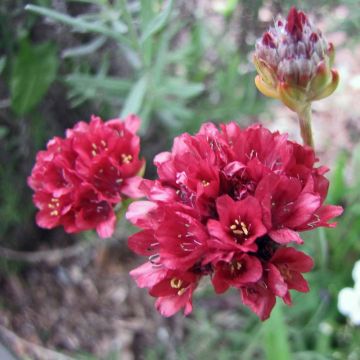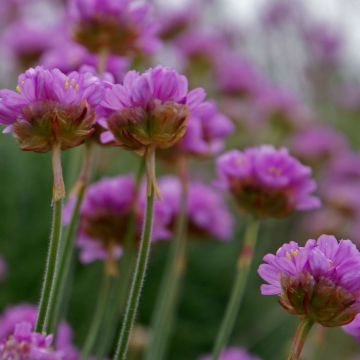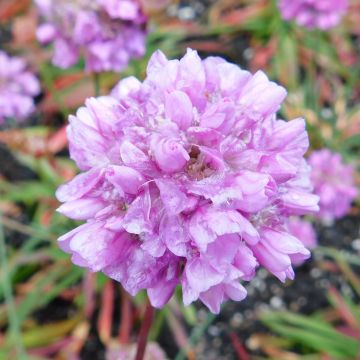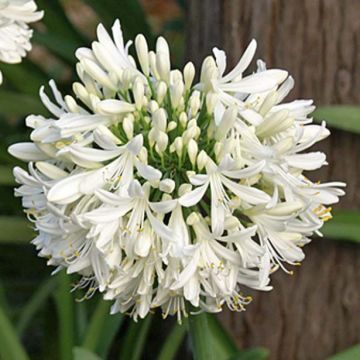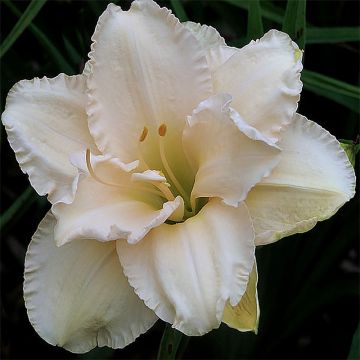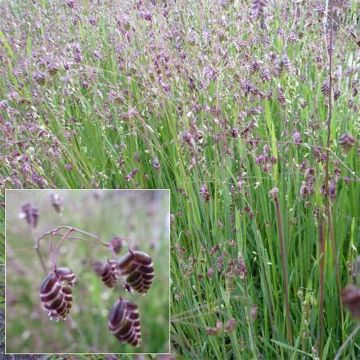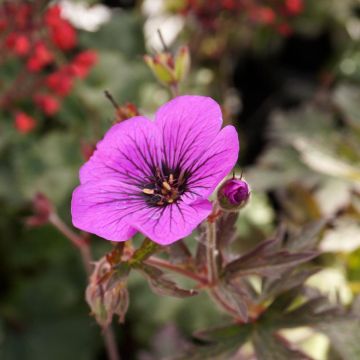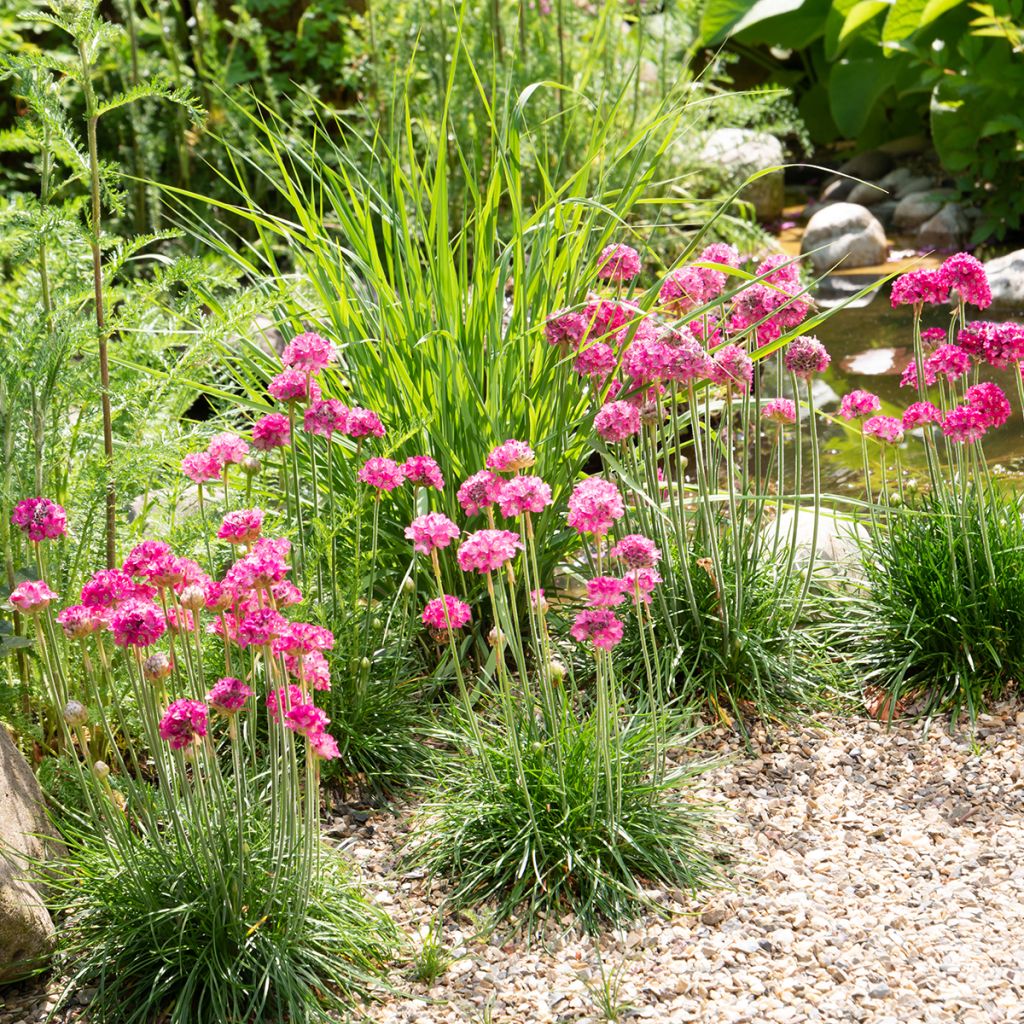

Armeria maritima Düsseldorfer Stolz - Sea Thrift
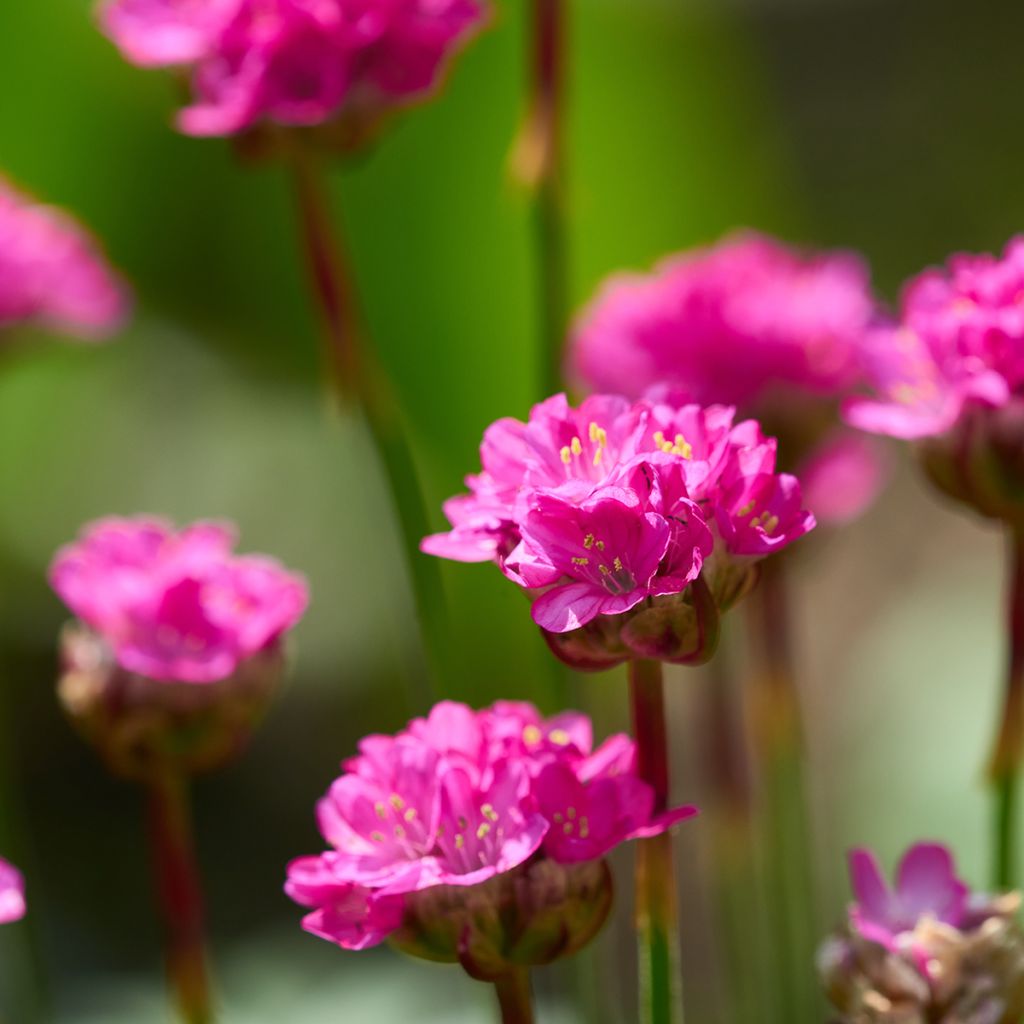

Armeria maritima Düsseldorfer Stolz - Sea Thrift


Armeria maritima Düsseldorfer Stolz - Sea Thrift
Armeria maritima Düsseldorfer Stolz - Sea Thrift
Armeria maritima Düsseldorfer Stolz
Sea Thrift, Spanish Thrift
This item cannot be shipped to the selected country
Delivery charge from €5.90
Delivery charge from €5.90
More information
Schedule delivery date,
and select date in basket
This plant carries a 12 months recovery warranty
More information
We guarantee the quality of our plants for a full growing cycle, and will replace at our expense any plant that fails to recover under normal climatic and planting conditions.
From €5.90 for pickup delivery and €6.90 for home delivery
Express home delivery from €8.90.
From €5.90 for pickup delivery and €6.90 for home delivery
Express home delivery from €8.90.

Does this plant fit my garden?
Set up your Plantfit profile →
Description
Armeria maritima 'Düsseldorfer Stolz' is a German selection of Sea Thrift with very bright pink pompom flowers. It is a small evergreen perennial plant that is really easy to grow. It forms a blue-green cushion that is adorned for a long period with small reddish-pink flowers that can be seen from afar. It is sometimes known to have a repeat flowering habit. Adapted to sandy coastal areas, it can withstand wind, drought, and cold. Easy to cultivate, its only requirement is to be planted in well-drained soil in full sun.
Sea Thrift 'Düsseldorfer Stolz' belongs to the family of Plumbaginaceae. It is one of the many cultivars of Armeria maritima, native to mountains and coasts of the Northern Hemisphere, including Europe. This robust perennial, with a clump-forming habit, resembles a grass, earning it the nickname "Spanish Grass". It will reach a height of 30 cm (12in) when in flower, 15 cm (6in) for the foliage, with a spreading of 30 cm (12in) and more over time. This variety forms a compact and dense clump. The remarkably long flowering period begins in May and only ends in August. There is sometimes a second flowering in late summer. The flowers are a vivid and particularly bright pink to red, clustered in dense round heads at the top of long rigid stems. The foliage, evergreen and anchored on the ramified stump, has a very vibrant blue-green colour that is still visible in winter. It resembles grasses in its delicacy.
The Sea Thrift thrives in well-drained soil and full sun. It is not afraid of sea spray. It will fulfill its role as ground cover in rockeries or borders. It can be associated with other perennials that require the same growing conditions such as carnations (classic but unbeatable for this purpose), as well as other small cushion-forming plants like woolly artemisia, heart-leaved globe daisies, creeping baby's breath, everlasting Helichrysum angustifolium, snow-in-summer (Cerastium tomentosum), or fleabane (Erigeron karvinskianus). It can also be planted in an alpine garden or in pots, containers, and flower boxes.
Report an error about the product description
Armeria maritima Düsseldorfer Stolz - Sea Thrift in pictures
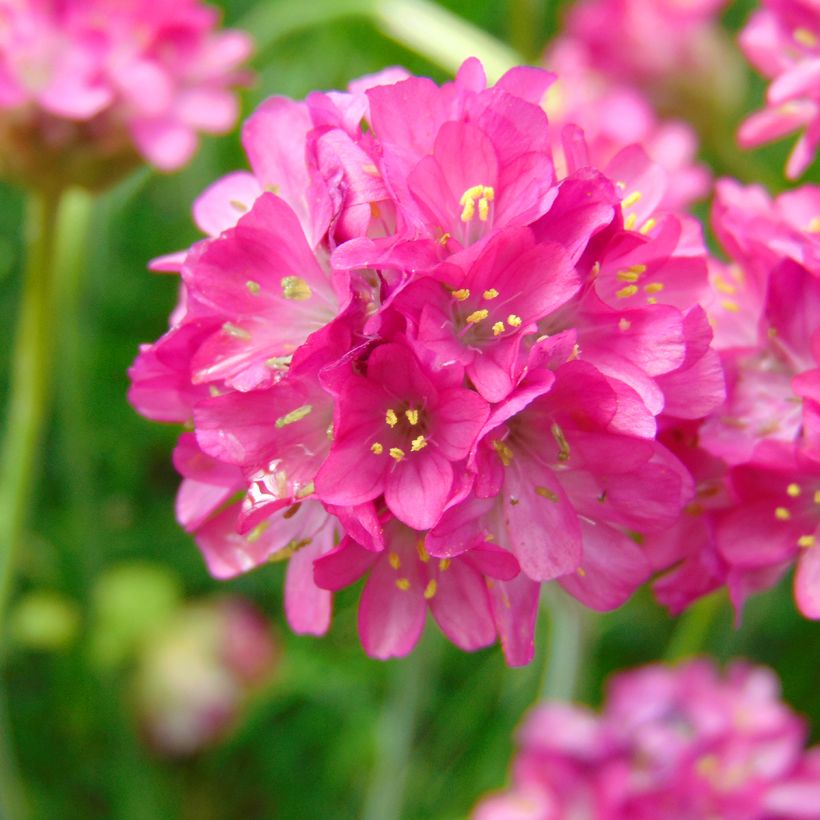

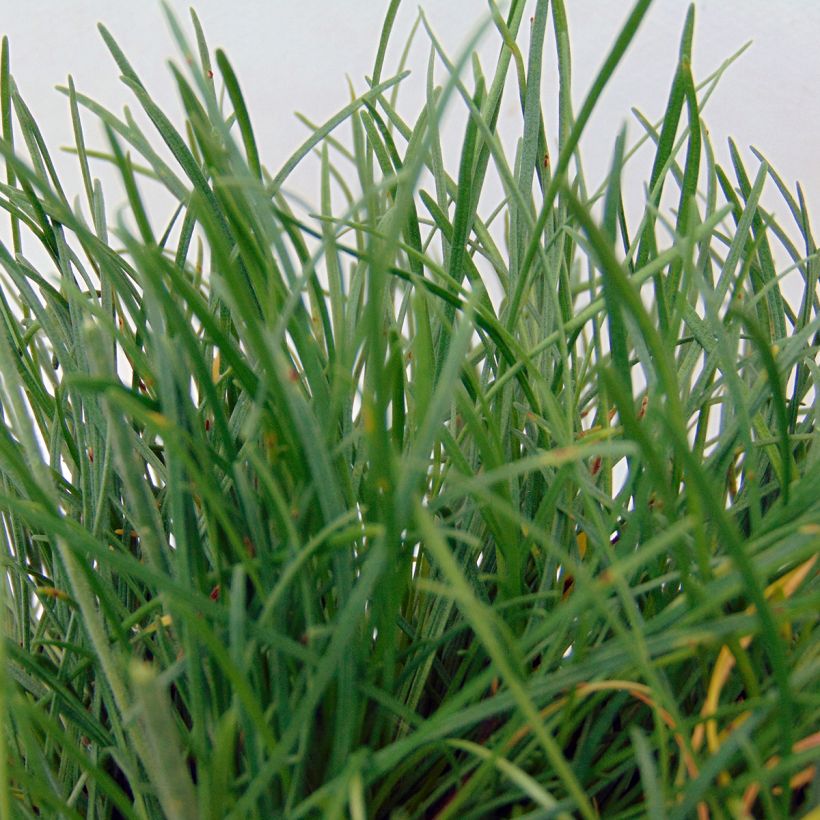

Flowering
Foliage
Plant habit
Botanical data
Armeria
maritima
Düsseldorfer Stolz
Plumbaginaceae
Sea Thrift, Spanish Thrift
Cultivar or hybrid
Other Armeria - Sea Thrift
Planting and care
Plant Sea Thrift in light and well-drained, even poor soil that is moist but not too dry in summer, slightly alkaline, neutral, or slightly acidic. This perennial requires sun and tolerates wind perfectly. Resistant to wind, spray, and drought, its only enemy is excess moisture. Cut back the withered clumps after flowering, this will give vigour to the foliage helping it remain clean and neat in winter.
Planting period
Intended location
Care
-
, onOrder confirmed
Reply from on Promesse de fleurs
Summer flowering perennials
Haven't found what you were looking for?
Hardiness is the lowest winter temperature a plant can endure without suffering serious damage or even dying. However, hardiness is affected by location (a sheltered area, such as a patio), protection (winter cover) and soil type (hardiness is improved by well-drained soil).

Photo Sharing Terms & Conditions
In order to encourage gardeners to interact and share their experiences, Promesse de fleurs offers various media enabling content to be uploaded onto its Site - in particular via the ‘Photo sharing’ module.
The User agrees to refrain from:
- Posting any content that is illegal, prejudicial, insulting, racist, inciteful to hatred, revisionist, contrary to public decency, that infringes on privacy or on the privacy rights of third parties, in particular the publicity rights of persons and goods, intellectual property rights, or the right to privacy.
- Submitting content on behalf of a third party;
- Impersonate the identity of a third party and/or publish any personal information about a third party;
In general, the User undertakes to refrain from any unethical behaviour.
All Content (in particular text, comments, files, images, photos, videos, creative works, etc.), which may be subject to property or intellectual property rights, image or other private rights, shall remain the property of the User, subject to the limited rights granted by the terms of the licence granted by Promesse de fleurs as stated below. Users are at liberty to publish or not to publish such Content on the Site, notably via the ‘Photo Sharing’ facility, and accept that this Content shall be made public and freely accessible, notably on the Internet.
Users further acknowledge, undertake to have ,and guarantee that they hold all necessary rights and permissions to publish such material on the Site, in particular with regard to the legislation in force pertaining to any privacy, property, intellectual property, image, or contractual rights, or rights of any other nature. By publishing such Content on the Site, Users acknowledge accepting full liability as publishers of the Content within the meaning of the law, and grant Promesse de fleurs, free of charge, an inclusive, worldwide licence for the said Content for the entire duration of its publication, including all reproduction, representation, up/downloading, displaying, performing, transmission, and storage rights.
Users also grant permission for their name to be linked to the Content and accept that this link may not always be made available.
By engaging in posting material, Users consent to their Content becoming automatically accessible on the Internet, in particular on other sites and/or blogs and/or web pages of the Promesse de fleurs site, including in particular social pages and the Promesse de fleurs catalogue.
Users may secure the removal of entrusted content free of charge by issuing a simple request via our contact form.
The flowering period indicated on our website applies to countries and regions located in USDA zone 8 (France, the United Kingdom, Ireland, the Netherlands, etc.)
It will vary according to where you live:
- In zones 9 to 10 (Italy, Spain, Greece, etc.), flowering will occur about 2 to 4 weeks earlier.
- In zones 6 to 7 (Germany, Poland, Slovenia, and lower mountainous regions), flowering will be delayed by 2 to 3 weeks.
- In zone 5 (Central Europe, Scandinavia), blooming will be delayed by 3 to 5 weeks.
In temperate climates, pruning of spring-flowering shrubs (forsythia, spireas, etc.) should be done just after flowering.
Pruning of summer-flowering shrubs (Indian Lilac, Perovskia, etc.) can be done in winter or spring.
In cold regions as well as with frost-sensitive plants, avoid pruning too early when severe frosts may still occur.
The planting period indicated on our website applies to countries and regions located in USDA zone 8 (France, United Kingdom, Ireland, Netherlands).
It will vary according to where you live:
- In Mediterranean zones (Marseille, Madrid, Milan, etc.), autumn and winter are the best planting periods.
- In continental zones (Strasbourg, Munich, Vienna, etc.), delay planting by 2 to 3 weeks in spring and bring it forward by 2 to 4 weeks in autumn.
- In mountainous regions (the Alps, Pyrenees, Carpathians, etc.), it is best to plant in late spring (May-June) or late summer (August-September).
The harvesting period indicated on our website applies to countries and regions in USDA zone 8 (France, England, Ireland, the Netherlands).
In colder areas (Scandinavia, Poland, Austria...) fruit and vegetable harvests are likely to be delayed by 3-4 weeks.
In warmer areas (Italy, Spain, Greece, etc.), harvesting will probably take place earlier, depending on weather conditions.
The sowing periods indicated on our website apply to countries and regions within USDA Zone 8 (France, UK, Ireland, Netherlands).
In colder areas (Scandinavia, Poland, Austria...), delay any outdoor sowing by 3-4 weeks, or sow under glass.
In warmer climes (Italy, Spain, Greece, etc.), bring outdoor sowing forward by a few weeks.


































